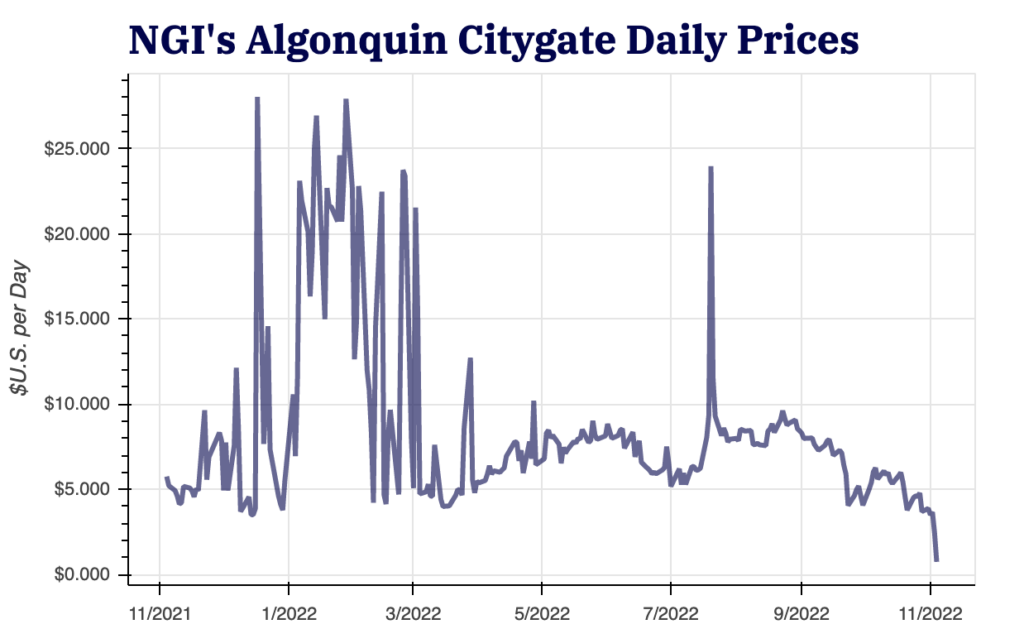The CEO for New England’s largest utility, Eversource Energy, called on President Biden in a letter last week to enact federal emergency orders to “swiftly address the growing concerns” of New England’s access, or lack thereof, to natural gas this winter heating season.
New England, which lacks the natural gas pipeline infrastructure to fill out its demand, relies on LNG shipments to its three liquefied natural gas import facilities on “foreign flagged vessels,” CEO Joseph Nolan said. “However, because of the war in Ukraine, LNG imports are not available…in the volumes necessary to meet this winter’s needs without causing further stress on European markets and the American economy.”
What’s more, Nolan said that any added reliance on “foreign-sourced...



